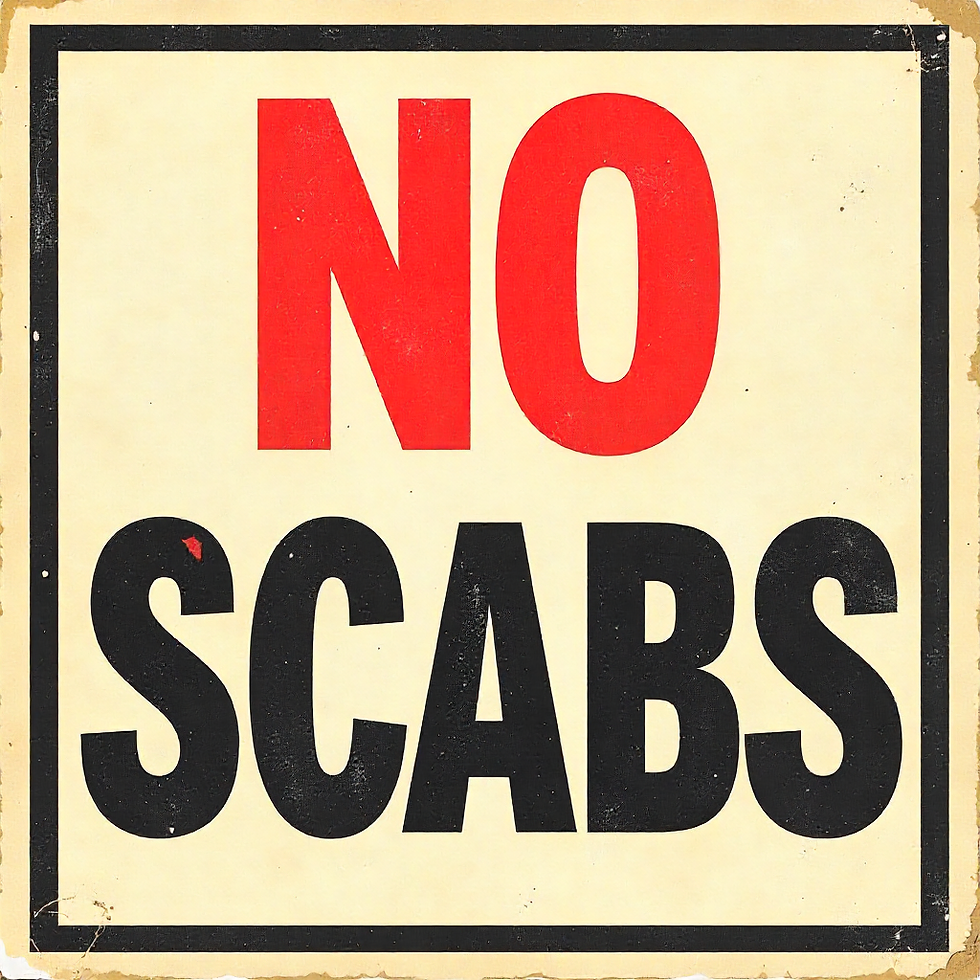Bill C-58 Is Great For Labour… But Redditors Are Worried
- lelsutoronto
- Nov 14, 2023
- 4 min read

On November 9th of 2023, the federal government announced Bill C-58.
While not yet law, it was directly negotiated in the confidence-and-supply agreement between the Liberals and NDP. As such, a version of it will almost certainly be affirmed in Parliament.
On the surface, it is a fantastic win for Canada’s labour movement.
In a nutshell, Bill C-58 bans employers from using replacement workers to do the work of unionised employees who are on strike or locked out. An employer who violates the law could, if convicted, be fined up to $100,000 per day.
However, there are some exceptions.
First and foremost, to ensure the proposed law remains intra vires, it only applies to federally regulated workplaces. While the whole list is available here, generally speaking the new law applies to nationally focussed industries such as air travel, radio and television, banks, and the postal service.
There is a further exception for situations where keeping a workplace unstaffed could pose a threat to health, safety, property, or the environment. In these cases, replacement workers can be hired so long as they are only being used in this capacity.
It will also be the case that any non-unionized contractors hired before a notice of a lockout or strike can continue working, providing that they do so "in the same manner, to the same extent and in the same circumstances as they did before the notice was given.”
News about the bill has sparked discussion on forums such as Reddit community r/canada. The link to one of the discussions in question can be found here.
One of the most upvoted comments, written by user admiraltubby90, asks:
“This is good news but the federal government still has the power to force employees back to work. I just see them forcing them back to work instead of hiring scabs?”
While a valid concern, I believe that this will likely not come to pass. In 2015, Saskatchewan Federation of Labour v. Saskatchewan interpreted the right to strike as being part of Section 2(d) of the Charter (the freedom of association). Consequently, if the federal government were to instate back-to-work legislation, the Supreme Court would almost certainly deem it to be unconstitutional.
This doesn’t mean that there’s no avenue for this to happen; via the notwithstanding clause, it is possible for the Canadian government to override this ruling in an Act of Parliament under Section 33(1) of the Charter; however, the Canadian government has never exercised this right. The potential backlash from invoking s.33(1) for the first time ever is likely enough to prevent the federal government from seriously considering this option bar a national catastrophe.
A second user going by Love-and-Fairness commented:
“1/40 people, >1/40 workers getting some extra leverage if they choose to strike? It's decent, I'm sure groups who are poised to take advantage of it are happy.
Nothing crazy tbh, this seems like a basic thing that would occur in a functioning democracy where workers outnumber owners (if we're negotiating you're not allowed to use the power we helped build and consolidate into you to replace us to save money) except it's not even that good because it doesn't apply to everyone and based on the numbers doesn't apply to you.”
While also a valid criticism, the reality is that the federal government simply does not have the jurisdiction to go beyond protecting federal workers. Cases such as Toronto Electric Commissioners v Snider have led Canadian courts to interpret Section 92 of the Constitution Act as giving provincial governments the power to regulate labour save for nationally-oriented sectors that are explicitly under the guise of the federal government. As such, even if the federal government wanted this legislation to apply to all Canadian workers, such a law would likely be deemed unconstitutional.
Now, that doesn’t mean that non-federal workers should lose hope. The passing of a progressive bill like Bill C-58 is promising news because it now sets a precedent for this type of legislation at the national level, which in turn makes it more palatable at the provincial level. In fact, British Columbia and Quebec already have laws on the books that prohibit provincial companies from hiring scab worker. Conceivably, relatively labour-friendly provinces may now follow suit and use the press surrounding Bill C-58 as an opportunity to put forward similar legislation.
However, in less labour-friendly provinces, workers probably shouldn’t be holding their breath. As an example, Doug Ford’s Progressive Conservatives became the first government in Ontario history to use the notwithstanding clause in June of 2021. They then attempted to do so again to push through back to work legislation in the face of the CUPE strike in November of 2022. Now, in both cases, the legislation was ultimately rescinded; the former by the Ontario Court of Appeal and the latter in the face of public outcry. However, the fact that Ford is one of the only premiers in Canadian history to even attempt to use the clause, (and one of even fewer to attempt to do so more than once) demonstrates an almost unique willingness to overturn rights and freedoms to tackle policy objectives. This in turn makes a move to instate limits to this power extremely unlikely under his government.
In any case, Bill C-58 is ultimately good news for Canadian workers, and will hopefully be part of a larger trend towards instating more progressive labour laws. Exactly how this new federal law will inspire similar legislation in the provinces, however, remains uncertain.
- CD




Comments